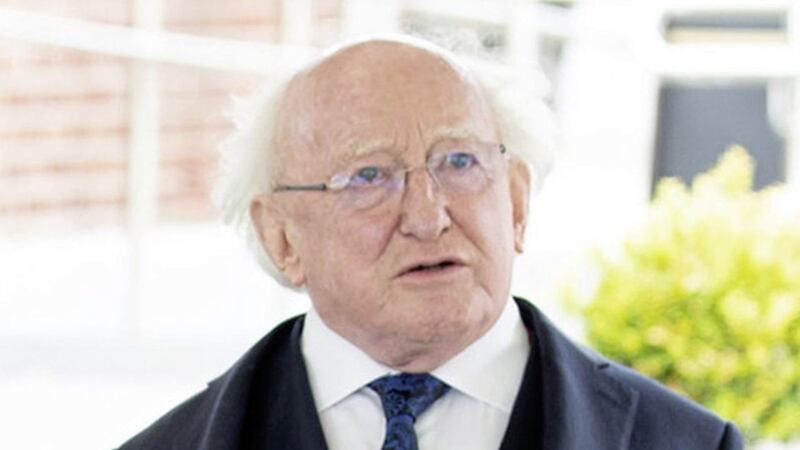The next election to a Stormont of some kind will come soon enough, too soon for many.
Though not likeable and probably unstable from the outset, the balance of parties within it still raises passions in advance.
Unionist politics is fretting, nationalism/republicanism more laid back. ‘Who speaks for unionism’ agitates airwaves and tweeters. And who speaks for the Irish born and bred in the north? There isn’t anything like the same heat in the question. ‘Irish’ fits many best where once some answered to ‘northern Catholic’, and the two main nationalist parties have their catchment areas well mapped out.
The notion of communal spokespeople leapt back into prominence of time in recent days, thanks to that invitation from the main Church leaders to President Higgins, Michael D, and the cufuffle that ensued when he said thank you but no. What was intriguing was how confidently several people commented on the president’s decision with disapproval and disappointment, as though speaking for others than themselves. We’ll discount unionist reaction, transparent stuff that most of it was. (‘Breathtaking hypocrisy and disingenuousness’ from the DUP, said Professor Diarmaid Ferriter.)
But Archbishop Eamon Martin and former taoiseach John Bruton? Well-meaning Bruton never did understand northerners, nationalist or unionist, although he also baffled a fair few fellow-southerners. ‘Didn’t he say the most exciting moment in his life was meeting Prince Charles?’: the disobliging recall came from a southern citizen offended on behalf of their head of state. Like a swathe of southern opinion, for whom Michael D. is the best of politics. Archbishop Martin, presently head of the Irish Catholic Church, also got thumbs down for voicing disappointment though with the comment that few enough southerners know who he is.
North and south there has been considerable discussion on the glut of anniversaries in these years, the merits and demerits of ‘marking’ the most contentious. Historians had their say on the president’s decision, an Irish Times round-up substantively rebuking the Higgins’ critics. Dr Brian Hanley called ‘the idea of shared history always flawed’. In a view echoed by others he said that no commemoration of the establishment of Northern Ireland could be non-contentious ‘given that it was founded on discrimination and exclusion backed up by state violence.’ But the archbishop had already made clear his disapproval that nationalist politicians decided against participation in NI ceremonies.
There was a time when the leading prelate of the day tick-tacked with the SDLP to make sure they aligned. If Colum Eastwood or a proxy tick-tacks with Eamon Martin it suits them both to keep it quiet. And Sinn Féin? Even if republicans had a male figurehead who didn’t champion at least a limited provision of abortion, the two organisations would keep their distance. Michelle O’Neill has not felt the need to recite the Adams/McGuinness line about being the best Catholic they could be. Those days are gone.
But the disappointed archbishop has a constituency, shaken by the worldwide scandals of abuse by priests and in church-run institutions, shrunken by secularism, with an ageing priestly workforce unable to contemplate women priests.
Archbishop Martin has trouble finding able men to keep churches open. He also knows that prelates of the past spoke for northern Catholics, but perhaps forgets they led a community otherwise lacking political organisation.
Cardinals O Fiaich and Daly in wildly different styles were churchmen with feet on the ground, friends in Dublin. Eddie Daly in Derry, Denis Faul, from Dungannon to his hard last years in Carrickmore, had voices that reached beyond the ultra-devout. They belonged to a Church that no longer exists, like the community they spoke for. Today’s most devout may want their archbishop to matter. But the archbishop is not the spokesman for today’s nationalists.
Unionist spokespeople parade respect for their faded state, anxiously. Nationalists, less anxious and more confident, last week saw the President of Ireland cutting through pretence – and implicitly speaking for them.








